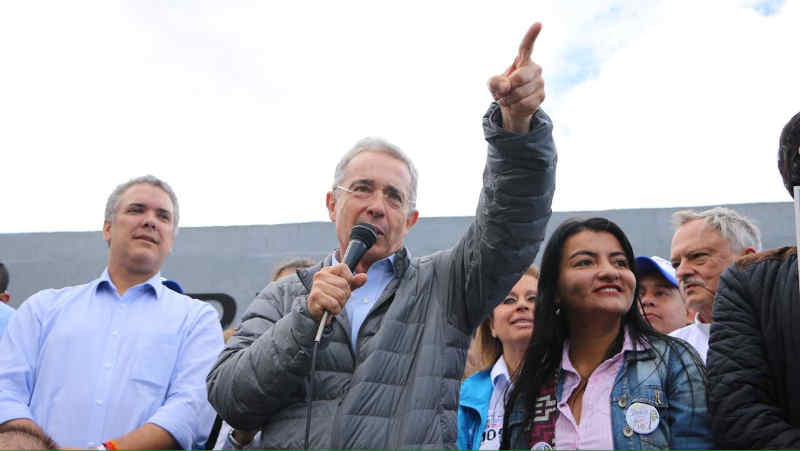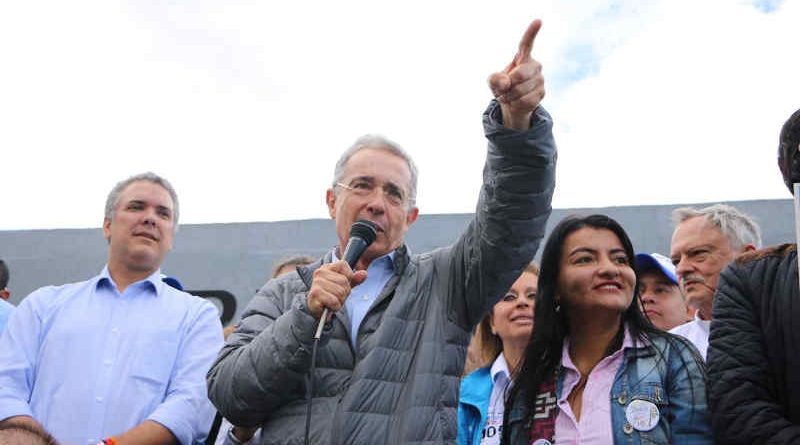Former Colombian President Alvaro Uribe Arrested Under Fraud Charges

The court observed that Uribe was at fault and his allies had undertaken new witness tampering efforts.
Colombia’s Supreme Court has ordered to keep former President Alvaro Uribe under house arrest while a fraud and witness tampering case against him is under way. According to Reuters, Uribe has declared his innocence in the case and questioned the court’s independence.
The Reuters report adds that the court reached the decision of detaining Uribe on Tuesday (August 4) after concluding there was potential for obstruction of justice to take place. He will stay in confinement at his residence in Cordoba province from where he can offer his defence.
La privación de mi libertad me causa profunda tristeza por mi señora, por mi familia y por los colombianos que todavía creen que algo bueno he hecho por la Patria
— Álvaro Uribe Vélez (@AlvaroUribeVel) August 4, 2020
“The privation of my liberty causes me profound sadness for my wife, for my family, and for Colombians who still believe that I have done something good for the country,” Uribe wrote on Twitter before the court decision.
[ Again, Rahul Gandhi Highlights Corruption in PM Modi’s Rafale Deal ]
[ Also Read: Protesters Demand Israeli PM Netanyahu’s Resignation ]
The Supreme Court order is the first ever in Colombia about the detention of a former president. The case against Uribe is about a feud with the leftist Senator Ivan Cepeda who had allegedly hatched a conspiracy to link Uribe to right-wing paramilitary groups.
The court observed that Uribe was at fault and his allies had undertaken new witness tampering efforts even after its original ruling. Reuters reports that Uribe and lawmaker Alvaro Hernan Prada face prison terms of up to 12 years.
According to Reuters, Uribe is known for mounting an aggressive offensive against Marxist guerrillas during his 2002 to 2010 tenure. He and his family have long been accused of paramilitary links. His brother Santiago is facing a murder charge.
Right-wing paramilitary groups, formed in the 1980s to fight leftist rebels, were financed by drug traffickers, ranchers, and landowners. The groups, according to Reuters, ruled through terror, committing massacres, rapes, and mass displacements.






